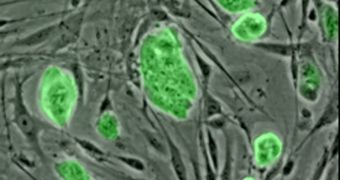At this point in time, various lines of stem cells have become available in hospitals for a host of medical procedures, such as replacement therapies and drug development. All of these lines are very genetically diverse, so researchers at The Scripps Research Institute (SRI) have taken it upon themselves to create a straightforward and reliable method of identifying their origins. The results of their investigations appear in the January 2010 issue of the prestigious journal Nature Methods.
The new work was conducted because ethnic differences of various lines of stem cells could alter the results of the medical procedures. In other words, if a patient receives treatments with lines that are outside of his or her ethnicity, then chances for failure are greater. This is especially true in organ replacement, where donors and recipients need to be perfectly in tune. A person's ethnic background has also been identified as one of the key factors that dictate the effectiveness and safety of various types of drugs.
“Ethnic origin is a critical piece of information that should come with every cell line. Everyone who works with stem cells should be doing this kind of analysis,” the senior author of the new paper, Scripps researcher, Professor Jeanne Loring, PhD, says. “Knowing that a big push in the future is using these lines in the clinic and in drug development, there's a need to have an ethnically diverse population of cells,” University of California in San Diego (UCSD) Assistant Professor Louise Laurent, M.D., PhD, also a co-first author of the paper, adds. The other first author has been UCSD Assistant Professor Caroline Nievergelt, PhD.
The new method builds up on previous work done in 2003, which revealed at the time that alterations in single letters of the genetic code (single nucleotide polymorphisms, or SNP) could be linked to certain ethnic origins. Laurent explains that simply asking a person about their ethnic origin may not be enough to get a clear picture on the stem-cell lines' origins, at times. “There's often an ancestor from a different area who a person doesn't know about,” she adds.
“There's not a lot of value in making a new pluripotent stem cell line now unless it has something new to offer. I think that increasing ethnicity and genetic diversity is an important reason for generating new lines,” Loring concludes, quoted by PhysOrg.

 14 DAY TRIAL //
14 DAY TRIAL //